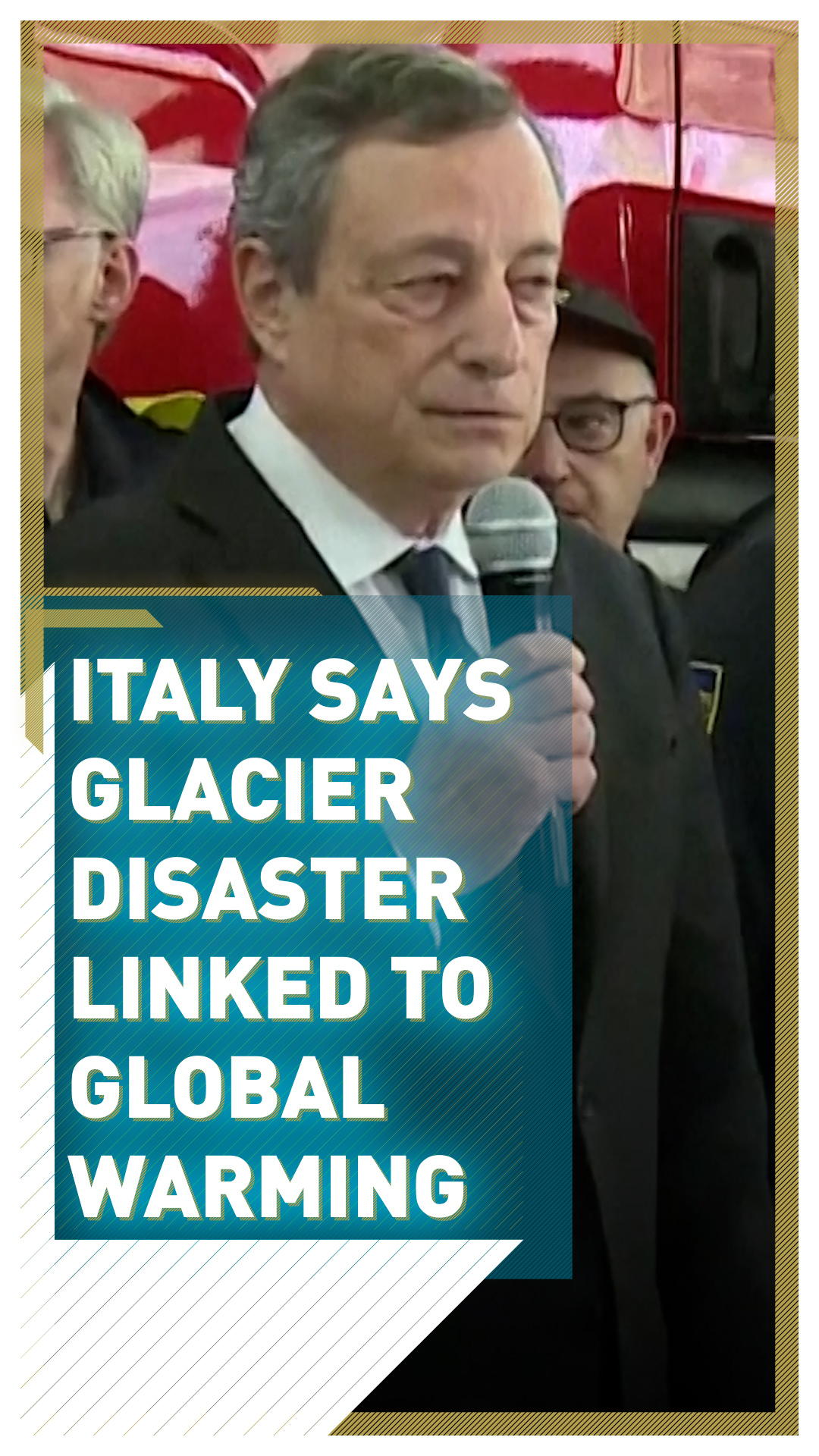00:44

Italy's prime minister linked the collapse of the country's biggest Alpine glacier to climate change, as hopes faded of finding further survivors from a disaster that has killed at least seven people.
Ice and rock thundered down Marmolada, the highest mountain in the Italian Dolomites, at 300 kilometers an hour, according to Maurizio Fugatti, the head of Trento province.
The bodies recovered so far were found "torn apart," rescuer Gino Comelli said.
Helicopter crews and drones searched for around people missing in the Italian Alps after part of a mountain glacier collapsed.
Much of Italy has been baking in an early-summer heat wave, and experts said the disaster was linked to climate change, making glaciers more unstable.
READ MORE
Robo-arm could help millions
What is tire pollution?
#MyFirstJob: How industry leaders started out
"This is the first such accident in the history of the mountain," said Gino Comelli, who was helping to coordinate rescue efforts.
The peak was too unstable for rescuers to try to approach on foot, Comelli said, adding that recent hot weather had been a factor in the collapse.
Pope Francis said he was praying for the victims and their families. "The tragedies that we are experiencing with climate change should force us urgently to pursue new ways that respect people and nature," he said on Twitter.
Four victims were identified on Monday, three of them Italian, including two alpine guides, and another from Czechia, news agency AGI reported, citing the rescuers.

This view taken on July 4, 2022 shows the results, on the arrival of the chairlift and refuge, of an avalanche set off by the collapse of the glacier the day before on the mountain of Marmolada. /Pierre Teyssot/AFP
This view taken on July 4, 2022 shows the results, on the arrival of the chairlift and refuge, of an avalanche set off by the collapse of the glacier the day before on the mountain of Marmolada. /Pierre Teyssot/AFP
Rising average temperatures have caused the Marmolada glacier, like many others worldwide, to shrink steadily over recent decades.
"The Marmolada glacier collapse is a natural disaster linked directly to climate change," said Poul Christoffersen, a professor in Glaciology at the University of Cambridge.
"High elevation glaciers such as the Marmolada are often steep and rely on cold temperatures below zero degrees Celsius to keep them stable," he said. "Catastrophic glacier collapses such as this are becoming more frequent."
Luca Biagini, a former head of alpine guides, said the disaster was, however, "unpredictable, nothing could have led us to expect something like this."
He added that the high temperatures were an important factor, but there had been hotter seasons in the past, including a record-breaking summer in 2003.
Italian Prime Minister Mario Draghi and the head of the National Civil Protection agency were due to visit the area later on Monday.
Cover image: Pierre Teyssot/AFP
Source(s): Reuters
,AFP

